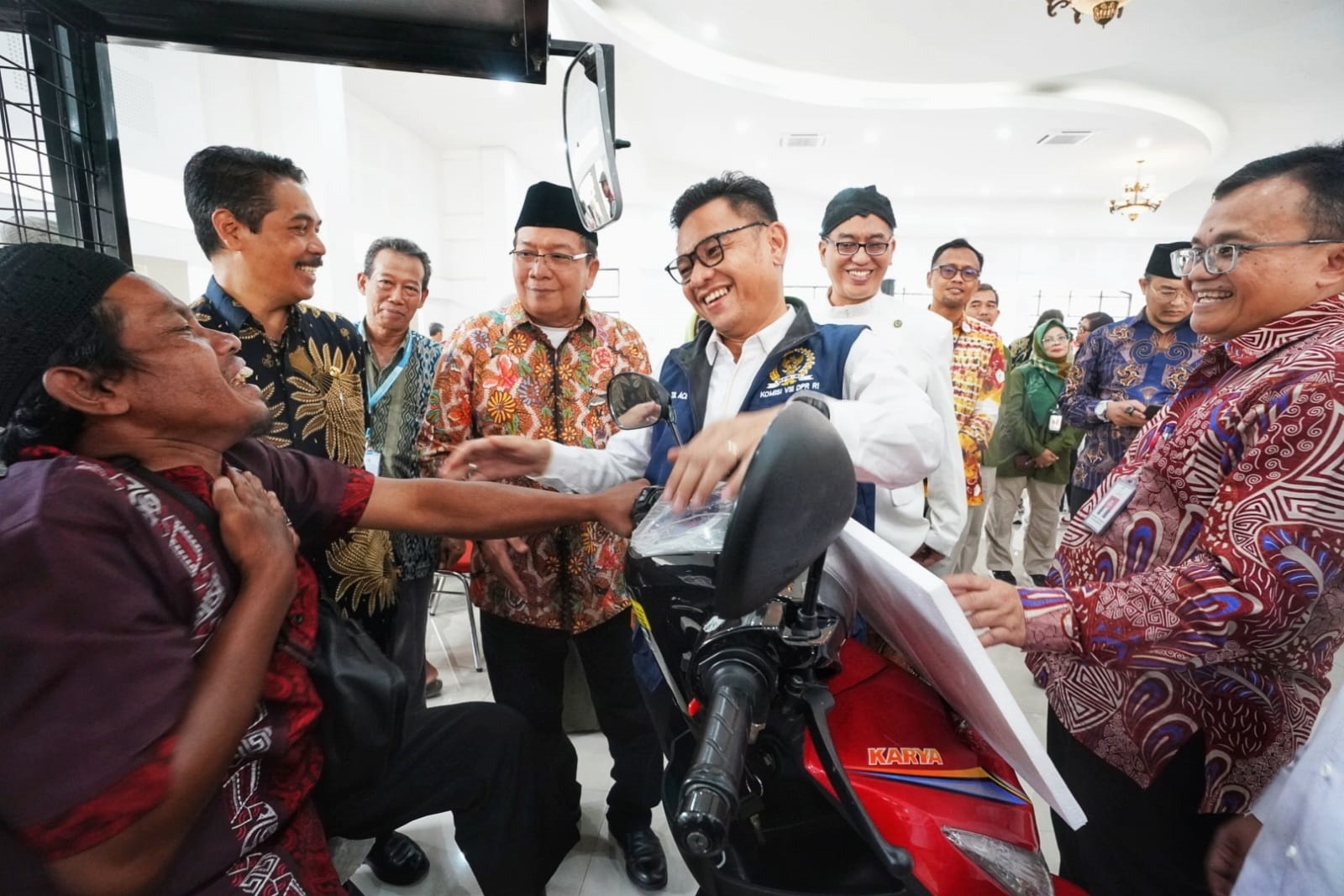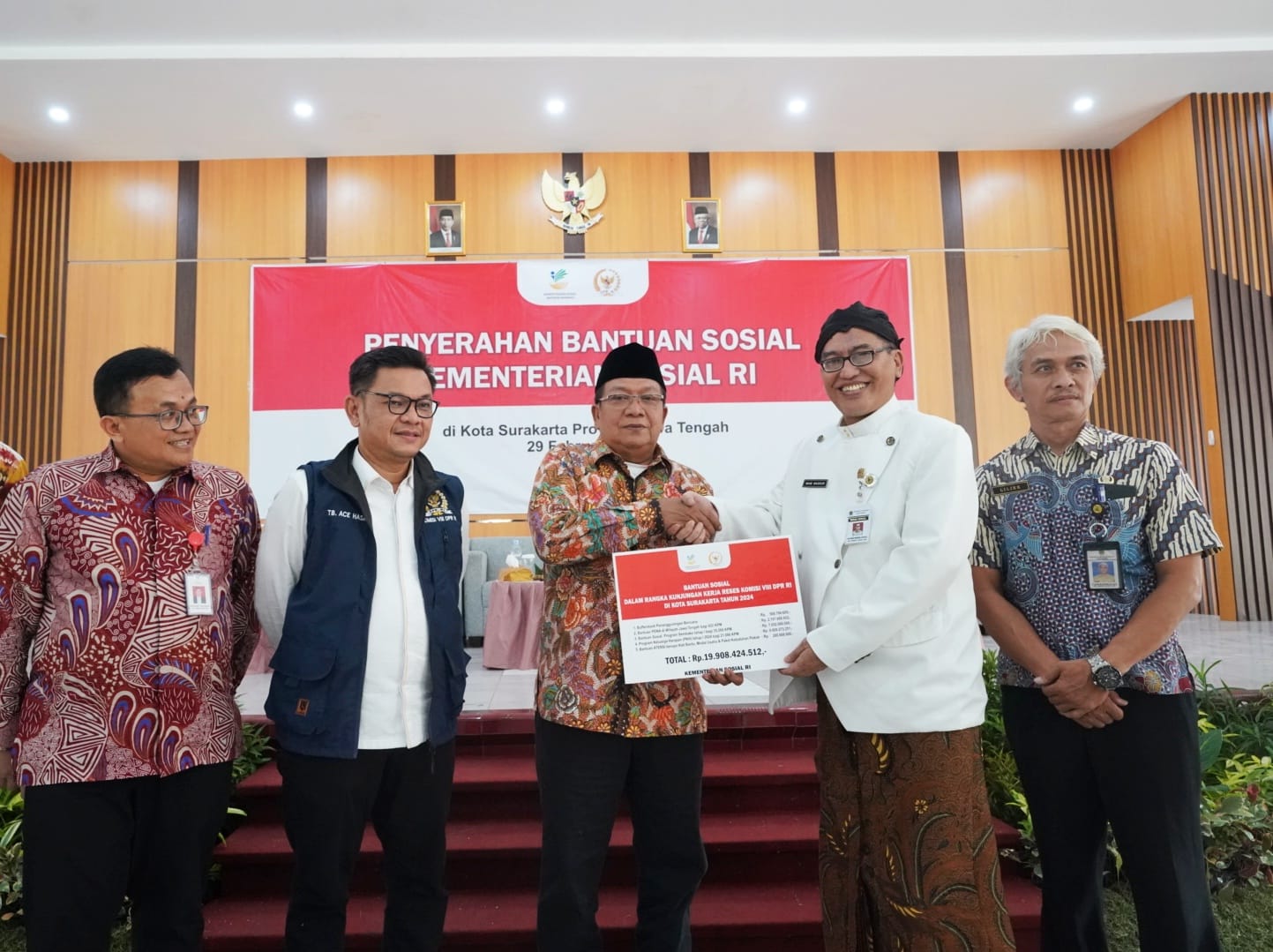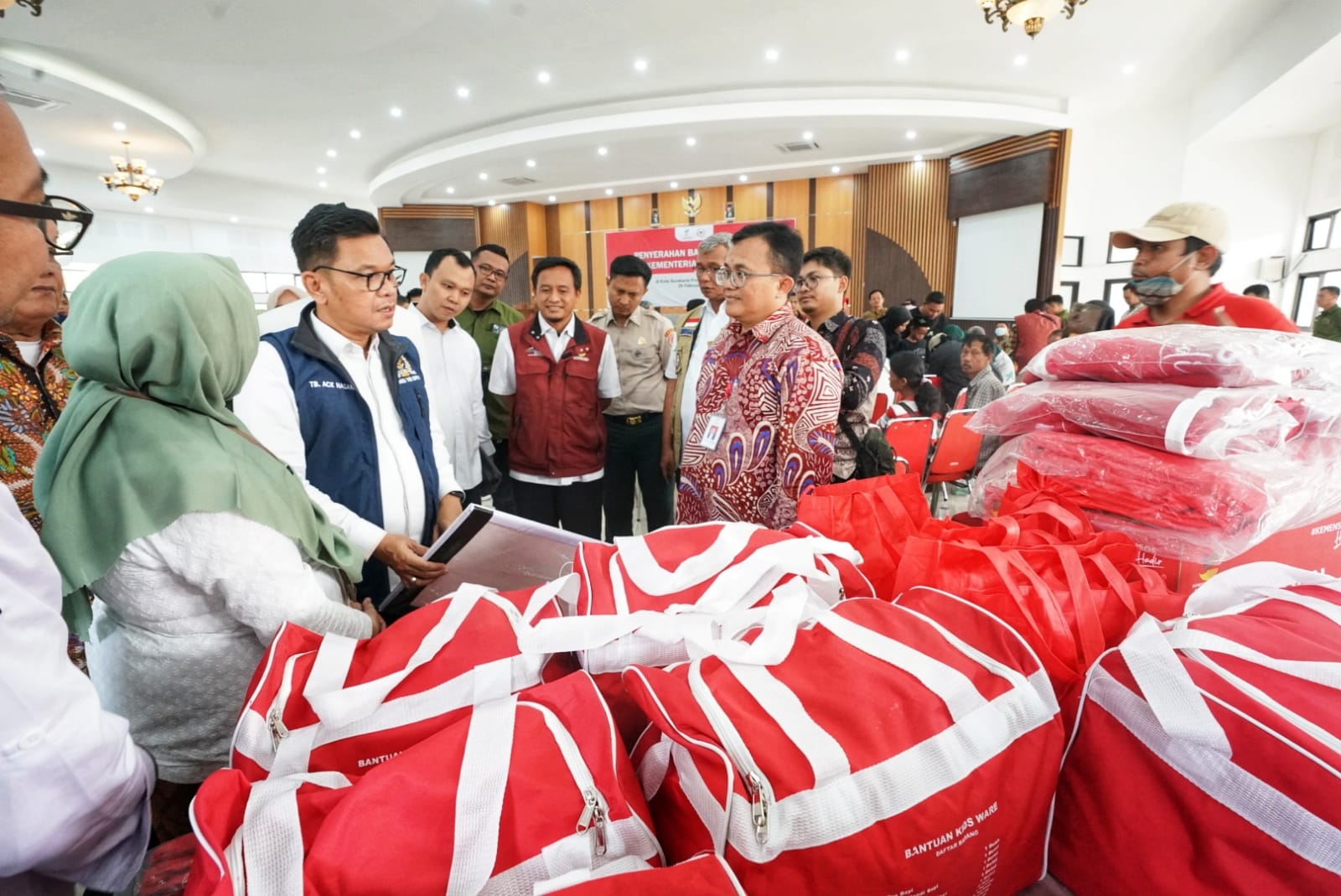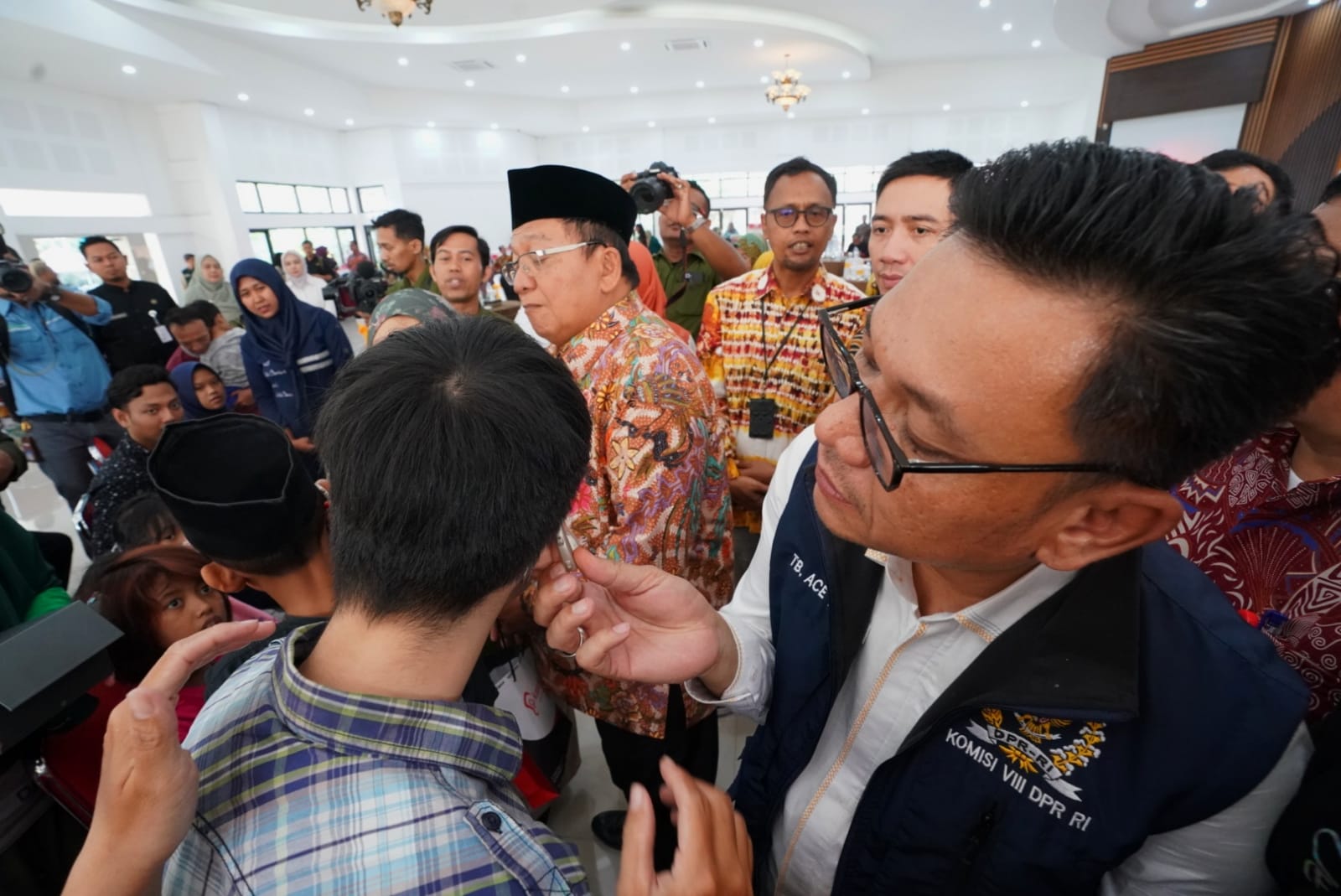SURAKARTA (February 29th,
2024) – Ministry of Social Affairs (MoSA) together with Commission VIII of
the House of Representatives of Republic of Indonesia distributed social
assistance for Persons in Need of Social Welfare Assistance (PPKS) in Surakarta
to support their financial independence and economic sustainability.
Rahmat Koesnadi, the Director of Social Protection for Natural Disaster Victims and Emergency who is also the person responsible for Commission VIII’s working visit to Surakarta, explained that MoSA and Commission VIII distributed assistance worth IDR 19 billion.
“There are some MoSA priority programs which are run in Surakarta. They are Basic Food program, Family Hope Program (PKH), ATENSI, and Nusantara Economic Heroes (PENA),” Rahmat said in his speech on the Working Visit of Commission VIII in the Integrated Center of Prof. Dr. Soeharso in Surakarta on Thursday (February 29th, 2024).
Aside from fulfilling the basic needs of Rahmat said that MoSA assistance also encouraged the empowerment of vulnerable groups, such as elderly and persons with disabilities. Thus, the persons in need of social welfare services (PPKS) would stay productive and independent economically.
The scheme of economic continuity for persons in need of social welfare services gained full support from Commission VIII of the House of Representatives of Republic of Indonesia as MoSA partner.
“We see some assistance is economic empowerment in the form of business capital assistance (PENA) that is given to the society. I think PENA is quite an effective program. Through this assistance, low-income communities will increase their income,” Deputy Chairperson of Commission VIII Tb Ace Hasan Syadzily said.
Ace added that economic empowerment also needed support from businesses. All parties had to be synergized to solve social problems.
Further, he said that economic empowerment assistance could drive economic recovery and societal empowerment. “This way, there will be community continuity in meeting their economic needs,” Ace said.
 English
English
 Bahasa
Bahasa




